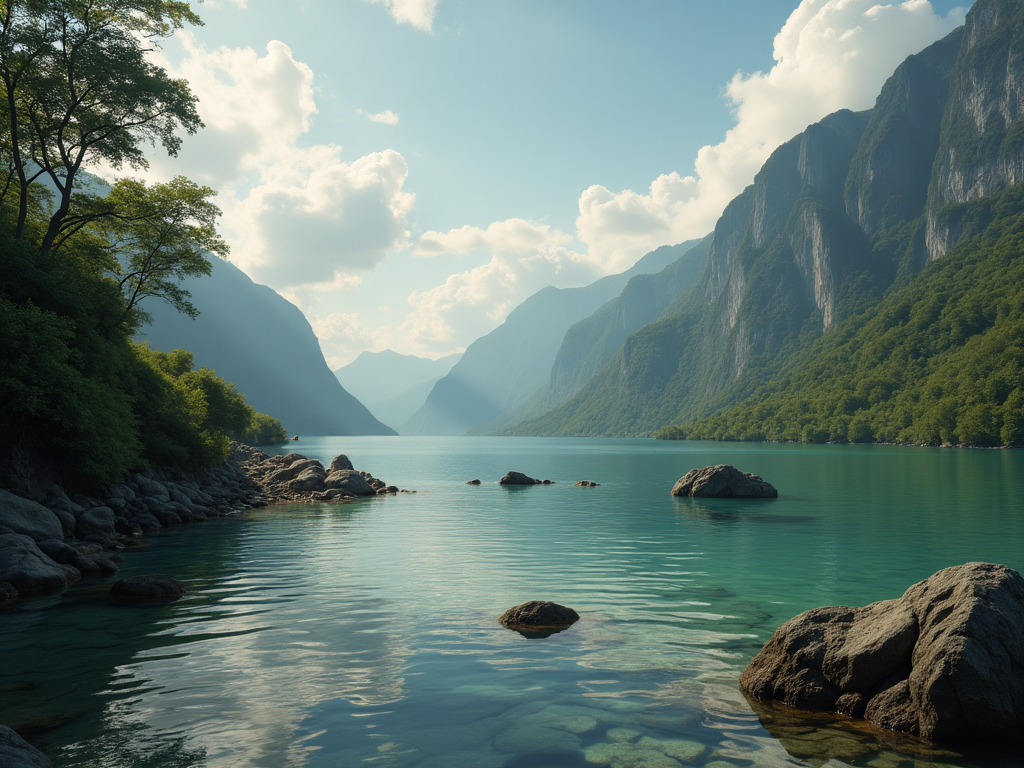Featured Articles
15 of the best all-inclusive hotels with top reviews for 2025: Spain, Turkey, Greece & more

You don’t need me to tell you that summer is almost upon us, and with that is, for us parents, the six weeks holidays. And if you haven’t already booked a break for you and the family for your summer holiday 2025, consider this your reminder to do so.
For many Brits, an all-inclusive holiday is the only thing they’ll consider. Loved for being a ‘no-brainer’ holiday, an all-inclusive hotel will take care of everything for you and your family. There’s the food and drink (including snacks, essential if travelling with kids!), entertainment, activities…the list is endless.
And all-inclusive holidays aren’t just offering a buffet meal and the odd ice cream. Many all-inclusive hotels have fine dining restaurants, food trucks with hot snacks around the pool, ice creams on tap and all the drinks you could possibly want, from coffee to a cosmopolitan.
I for one love an all-inclusive holiday, have been going on them for years. And the data on what makes a good holiday for Brits supports my love – a recent Skyscanner holiday trend report showed that value for money remains a priority for UK travellers, with the cost of the hotel and flight being the biggest factors determining where they travel – which is why an all-inclusive helps with that decision making.
There’s the popular all-inclusive hotels at classic holiday hotspots like Spain, the Canary Islands and Turkey, boujis adults-only all-inclusive spots in long-haul destinations from Mauritius to the Maldives and cheap all-inclusive hotels all over the world too. Not forgetting hotels for babies and toddlers, energy-fuelled kids and teenagers too – got to keep the kids happy!
One of the top reasons holidaymakers praise all-inclusive holidays is that you know what it’s going to cost you, upfront. Then it’s up to you to see if your budget or time allows for meals outside of the resort or activities that aren’t included. Another is the ease; everything is taken care of for you, with food available throughout the day (most including breakfast, lunch and dinner along with poolside snacks throughout the day), drinks on tap (from local wines and spirits to cocktails and soft drinks) plus activities on tap, which often includes kids’ club, evening entertainment, fitness classes and more.
We’ve scoured the globe to find real reviews and the best-rated hotels out there, from Spain to Aruba and more…
How I chose the best all-inclusive hotels
- Tripadvisor reviews: I’ve done a deep dive on travel websites like Booking.com, Tripadvisor and more, read the accompanying reviews to check they are nothing but positive and complimentary. Unfortunately we’re not able to test out all of the hotels featured, but if a HELLO! staffer has, we’ll let you know their thoughts too.
- Location: From Spain to the Seychelles, I’ve included all-inclusive resorts from across the globe.
- Budget: As well as luxurious, I’ve included family all-inclusive hotels, plus cheaper all-inclusive holidays, to suit all budgets and price points.
- Trusted holiday companies: Booking a holiday is pricey, and I’ve included all-inclusive hotels available via trusted holiday companies. That means they’re either ABTA or ATOL accredited or the HELLO! team have had personal – and positive – experiences with the companies.
AI in Travel
AI Travel Revolution: Must-Have Guide to the Best Experience
Experience the AI travel revolution firsthand as smart technology transforms trip planning into a personalized, effortless adventure. Discover how cutting-edge tools like cheQin.ai are reshaping the way we explore the world with tailored itineraries and real-time travel insights.

How AI is Changing the Way We Travel: The Next Frontier
Artificial intelligence (AI) is transforming nearly every facet of our lives, and travel is no exception. The integration of AI into travel technology is revolutionizing how we plan, book, and experience trips, offering smarter, more personalized, and efficient solutions. From virtual concierges to smart travel planning tools and cutting-edge innovations like cheQin.ai, AI is heralding a new era in the travel industry. This article dives deep into how AI is reshaping our journeys, what new tools are emerging, and what future trends travelers and businesses alike should watch.
A Look at New AI Tools Revolutionizing Travel
The travel landscape was once dominated by traditional agencies and manual planning, often resulting in generic recommendations and cumbersome booking processes. Today, AI tools are changing that narrative dramatically.
Innovative platforms like cheQin.ai exemplify these advances by leveraging machine learning algorithms and data analytics to provide highly personalized travel ideas. This technology can analyze user preferences, past travel history, and real-time factors like weather or local events to craft tailored itineraries. Such tools are not only improving convenience but elevating the quality of travel experiences by ensuring travelers make the most of their time and budget.
Beyond itinerary generation, AI-driven platforms are optimizing booking systems. By integrating natural language processing (NLP), many apps allow users to engage in human-like conversations, ask questions, and receive instant responses. This shifts travel planning from a tedious task into an interactive, enjoyable activity. Additionally, AI-powered price prediction models help users find the best deals by analyzing historical flight and hotel pricing trends, minimizing the guesswork and stress associated with last-minute bookings.
Virtual Concierges: The Rise of AI-Powered Travel Assistants
One of the most fascinating applications of AI in travel is the emergence of virtual concierges. These are AI bots or digital assistants embedded in travel apps and hotel websites, designed to offer personalized, real-time assistance.
Virtual concierges are capable of handling a variety of traveler needs: from restaurant recommendations and local attraction guides to booking transportation and answering common questions about travel policies. They provide 24/7 support without the wait times associated with human agents, making assistance accessible at any point during a trip.
For instance, AI virtual concierges can analyze a traveler’s preferences and dining history to suggest meal spots that fit dietary needs or highlight hidden local gems, enhancing authenticity in travel experiences. Hotels also deploy these assistants to streamline check-in/check-out procedures, provide room service requests, and offer customized wellness or entertainment options, thereby elevating guest satisfaction while reducing operational costs.
Smart Travel Planning: How AI Tailors Every Step of Your Journey
Smart travel planning powered by AI goes beyond mere itinerary building—it embraces a holistic approach to travel management. AI systems integrate multiple data points, including traveler behavior, transportation modes, accommodation availability, real-time traffic, and even social sentiment from travel communities.
By synthesizing this information, AI-driven smart travel planning can optimize routes for efficiency, suggest activities suited to the time of day or weather conditions, and create flexible plans that adapt if disruptions like flight delays occur.
Tools powered by cheQin.ai and similar platforms are advancing in predictive capabilities. For example, they can forecast tourist traffic, enabling travelers to avoid overcrowded sites or find alternative experiences. This adaptability ensures a stress-free and immersive travel experience tailored to an individual’s style—be it adventure, relaxation, cultural exploration, or culinary tourism.
Additionally, smart travel planning enables corporate travel managers to reduce costs and streamline logistics by automating expense tracking, itinerary synchronization, and compliance monitoring. This makes business trips more productive and less taxing on travelers.
Future Trends: What’s Next in the AI-Driven Travel Revolution?
As AI technology matures, the travel industry is poised to witness several exciting trends that will further redefine experiences:
Hyper-Personalization: Advanced AI will combine biometric data, social media activity, and environmental sensors to tailor every aspect of travel—from security screening to in-flight entertainment—creating seamless, unique journeys.
Augmented Reality (AR) and AI Integration: Travelers will enjoy AI-powered AR guides overlaying historical facts, navigation pointers, or immersive language translations onto real-world environments through smartphones or smart glasses.
Sustainability Focus: AI will help travelers make eco-conscious choices by recommending green accommodations, optimal travel routes to reduce carbon footprints, and real-time environmental impact tracking.
Voice-Activated Travel Planning: Building on virtual concierge systems, voice-activated AI assistants will become more conversational and context-aware, enabling effortless multi-step travel arrangements through speech.
Autonomous Transport: AI-driven autonomous vehicles and drones may become common for short-distance travel and parcel delivery, changing how tourists navigate destinations.
Blockchain and AI Synergy: To enhance security and transparency, AI integrated with blockchain technology could streamline identity verification and fraud prevention in travel transactions.
Why cheQin.ai is Leading the Charge in AI Travel Innovation
Among these emerging tools, cheQin.ai stands out for its cutting-edge application of AI to travel planning challenges. With a user-centric interface, it simplifies complex decision-making by curating personalized suggestions based on robust data inputs, continuously learning from user feedback to refine its recommendations.
Its ability to integrate data from diverse sources—including transportation databases, social reviews, local event schedules, and even weather forecasts—makes cheQin.ai a comprehensive travel planner capable of adapting to dynamic travel conditions.
Moreover, cheQin.ai emphasizes ethical AI use, focusing on transparent algorithms and data privacy, a vital consideration as travelers become more aware of how their personal information is handled.
Embracing the AI-Powered Travel Future
Artificial intelligence is unlocking unprecedented possibilities for travelers and the travel industry alike. By embracing new AI tools like cheQin.ai, virtual concierges, and sophisticated smart travel planning systems, we are moving toward journeys that are smarter, personalized, and more accessible. As these innovations continue to evolve, they promise to make travel not only easier but richer and more meaningful.
For travelers willing to explore this AI-driven frontier, the future holds more than just destinations—it offers intelligent experiences tailored uniquely to them, redefining what it means to explore the world.
Destinations & Things To Do
Untouched Destinations: Stunning Hidden Gems You Must Visit
Discover the magic of untouched destinations—hidden gems where nature’s beauty and local culture remain pure, offering travelers a serene escape from the crowds and a chance to experience the world in its most authentic form.

The World’s Most Untouched Destinations: Where Mass Tourism Hasn’t Reached
In an age dominated by Instagram-worthy spots and heavily trafficked landmarks, many travelers yearn to explore truly off-the-grid places, where crowds are absent, and nature or local culture remains undisturbed. These untouched destinations offer a rare glimpse into serene beauty and authentic experiences, often preserved by geography, accessibility challenges, or conscious local stewardship. For those seeking adventures away from the conventional travel sphere, understanding where to go — and how to respectfully engage — is crucial. Here, we delve into some of the world’s most pristine locations, enriched by insights from locals and explorers who have ventured beyond the beaten path.
Explore Truly Off-the-Grid Places: The Appeal of Untouched Destinations
The appeal of untouched destinations is multifaceted. Beyond the aesthetic and environmental purity, these sites often carry a sense of solitude and intimacy that mass tourism struggles to deliver. They provide a chance to reconnect with nature and local cultures on a deeper level, away from commercialized settings.
Locals from these regions often have a distinct perspective shaped by years of living in harmony with their environment. For example, indigenous communities in the Amazon rainforest emphasize sustainable practices that preserve their land while welcoming curious travelers with respect and openness. Similarly, remote islanders in the Pacific encourage visitors to immerse themselves in their traditions rather than simply observe from a distance.
Explorers who specialize in off-the-grid travel often emphasize preparation and sensitivity. Understanding local customs, minimizing environmental impact, and supporting small-scale, locally owned businesses all contribute to sustaining the fragile ecosystems and cultural heritage of such places.
Hidden Gems of the World: Where Mass Tourism Has Yet to Bloom
1. The Faroe Islands, North Atlantic
Nestled between Iceland and Norway, the Faroe Islands have escaped heavy tourism despite breathtaking cliffs, dramatic fjords, and vibrant birdlife. With fewer than 100,000 inhabitants, the islands maintain a quiet, authentic charm that travelers find irresistible. Locals welcome visitors but advocate for cautious tourism development to keep the place unspoiled.
According to a community leader in Tórshavn, the islands prioritize small-scale eco-tourism initiatives that promote hiking and wildlife-watching without overburdening the local infrastructure. Exploring this archipelago means wandering serene coastal paths, dining on fresh, locally caught seafood, and engaging with a rich cultural tapestry of Viking history and Nordic influences.
2. The Kamchatka Peninsula, Russia
Far removed from European Russian cities, Kamchatka offers volcanic landscapes, steaming geysers, and extensive wilderness. Few tourists venture this far east due to the region’s remoteness and challenging logistics. However, those who do are rewarded with unrivaled natural beauty and encounters with bears, salmon runs, and traditional reindeer herders.
Native Koryak people and other indigenous groups emphasize living in balance with nature, inviting respectful visitors to learn about their customs and traditions. Explorers emphasize that traveling here requires preparation for rugged conditions and a spirit of adventure, but the payoff is a rarity in modern travel — pristine solitude.
3. Taveuni Island, Fiji
Often overshadowed by Fiji’s more popular islands like Viti Levu or Vanua Levu, Taveuni remains a hidden paradise with lush rainforests, cascading waterfalls, and rich coral reefs. The local communities are active in conservation efforts to protect Taveuni’s biodiversity, which includes rare bird species and vibrant marine life.
Visitors who come here to explore off-the-beaten-path trails and dive pristine reefs are urged to support community-run eco-lodges and cultural tours. Local guides share stories passed through generations, providing travelers with a deep connection to the land and sea far away from typical tourist crowds.
How to Travel Responsibly in Untouched Destinations
When exploring truly off-the-grid places, it’s important to embrace responsible travel practices. Many local residents have expressed concerns about preserving their environment and culture, as unchecked tourism can bring unintended harm.
Here are several guiding principles recommended by locals and experienced explorers:
- Respect Local Customs: Take time to learn about and respect the traditions and ways of life of indigenous communities. Friendly inquiry and cultural sensitivity go a long way.
- Minimize Environmental Impact: Stick to established trails, avoid disturbing wildlife, and use eco-friendly products to reduce your footprint.
- Support Local Economies: Choose locally owned accommodations, hire guides from the community, and purchase handmade crafts to contribute positively to the local economy.
- Travel Light and Slow: Reduce the frequency of travel and extend your stay when possible to lower carbon emissions and engage more deeply with your surroundings.
- Stay Informed: Keep updated on local conservation efforts and challenges. Being an informed traveler helps advocate for sustainable tourism.
The Future of Untouched Destinations in a Connected World
As global connectivity increases, few places will remain completely untouched forever. However, the growing awareness of sustainable travel’s importance may help safeguard many of these hidden gems. Technology can be a double-edged sword — while it spreads awareness and attracts visitors, it can also overwhelm fragile environments if not managed correctly.
Both local stakeholders and travelers hold responsibility for ensuring that these rare sanctuaries remain intact. Responsible travelers can act as ambassadors for preservation, sharing the beauty and cultural richness of these places while respecting their boundaries.
Ultimately, the allure of truly off-the-grid places lies not only in their pristine landscapes but in the unique human stories they preserve. To explore these corners of the world is to embark on a journey of humility and discovery — a profound reminder that some of the greatest travel experiences occur away from the trodden tourist trails.
For those inspired to step beyond familiar destinations, embracing patience, respect, and curiosity can unlock unforgettable adventures that few have had the privilege to experience. The world’s most untouched destinations are not simply places on a map; they are living testaments to nature’s and humanity’s enduring harmony.
Featured Articles
Eight signings across Turkey for Hilton

Hilton Hotels has underlined its commitment to growing its presence in eastern Europe, with the signing of eight new hotels across Turkey.
The additions, across the group’s brand portfolio, include the group’s first “cave hotel”, featuring rooms honed out of the rock. They build on a presence in the country that dates back over the last 70 years, adding to an opened and pipeline figure currently sitting at 120 properties.
Building on a 70 year heritage
“We are thrilled to have signed a further eight properties across the country so far this year, located in vibrant Istanbul, coastal Izmir and scenic Cappadocia, as well as other cities,” said Mike Collini, Hilton’s vice president for development across central and eastern Europe. “This news builds on other exciting recent and upcoming brand entries for Hilton in Türkiye, and the renovation of the iconic Hilton Istanbul Bosphorus – all testament to our commitment to serve every traveller with our diverse range of properties globally.”
The cave hotel is the Elika Cave Suites Cappadocia, which joins Hilton’s Curio Collection. It will open in late 2025 in the town of Ortahisar, with 36 rooms. Guests will enjoy a truly local experience, in a region of Turkey where cave living and stone houses are part of the landscape. The hotel is located close to Ortahisar Castle, known as the ‘fairy chimney’, and believed to be one of the earliest multi-storey settlements ever.
Also joining a Hilton collection brand will be Palazzo Donizetti, which in later 2025 will add to the Tapestry Collection. In the urban setting of Istanbul’s Pera district, it will have 79 rooms and pay homage to long time resident and musician Giuseppe Donizetti. The hotel’s lobby bar will feature a piano, expected to be played regularly, while the restaurant will have an Italian twist to its menu.
Mid 2026 will see the Hotel Konak Izmir also join the Tapestry Collection. Located in the Aegean city of Izmir, it will have 92 rooms and a rooftop restaurant, while its wellness centre will feature a sauna and Turkish bath.
Also coming are two additions each for familiar Hilton brands, DoubleTree and Garden Inn. The DoubleTrees will open during 2026 in Edirne and Karsiyaka, a northern district of Izmir. The same year will see Hilton Garden Inn Mersin Forum launch, followed by a second Garden Inn hotel opening in late 2027 in the port of Samsun.
Bringing the Hampton waffle to Midyat
And in the city of Midyat, the Hampton by Hilton Mardin Midyat will open in early 2027 as the destination’s first internationally branded hotel. It will feature 82 rooms and, while linking with local culture, will also deliver Hampton’s own, in the form of the Hampton waffle on the breakfast menu.
Meanwhile, one of the group’s more longstanding destinations in Turkey, the Hilton Istanbul Bosphorus, is part way through a substantial update that will involve a USD80 million investment. Many guests arriving at the landmark property are already checking into newly upgraded rooms, as the rolling refit continues through 2025.
-

 AI in Travel18 hours ago
AI in Travel18 hours agoAI Travel Revolution: Must-Have Guide to the Best Experience
-

 Brand Stories1 week ago
Brand Stories1 week agoHow Elon Musk’s rogue Grok chatbot became a cautionary AI tale
-

 Brand Stories2 weeks ago
Brand Stories2 weeks agoVoice AI Startup ElevenLabs Plans to Add Hubs Around the World
-

 Asia Travel Pulse2 weeks ago
Asia Travel Pulse2 weeks agoLooking For Adventure In Asia? Here Are 7 Epic Destinations You Need To Experience At Least Once – Zee News
-

 AI in Travel2 weeks ago
AI in Travel2 weeks ago‘Will AI take my job?’ A trip to a Beijing fortune-telling bar to see what lies ahead | China
-

 Brand Stories2 weeks ago
Brand Stories2 weeks agoChatGPT — the last of the great romantics
-

 Destinations & Things To Do18 hours ago
Destinations & Things To Do18 hours agoUntouched Destinations: Stunning Hidden Gems You Must Visit
-

 The Travel Revolution of Our Era1 month ago
The Travel Revolution of Our Era1 month agoCheQin.ai Redefines Hotel Booking with Zero-Commission Model
-

 Brand Stories2 weeks ago
Brand Stories2 weeks agoHumans must remain at the heart of the AI story
-

 Brand Stories2 weeks ago
Brand Stories2 weeks agoChildproofing the internet is a bad idea












